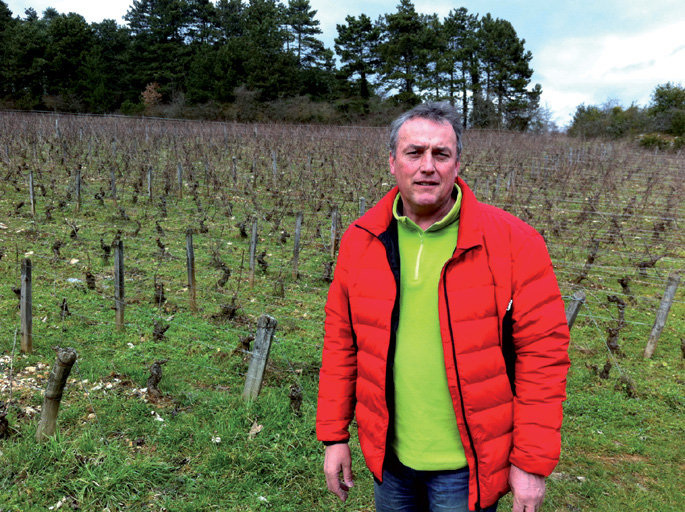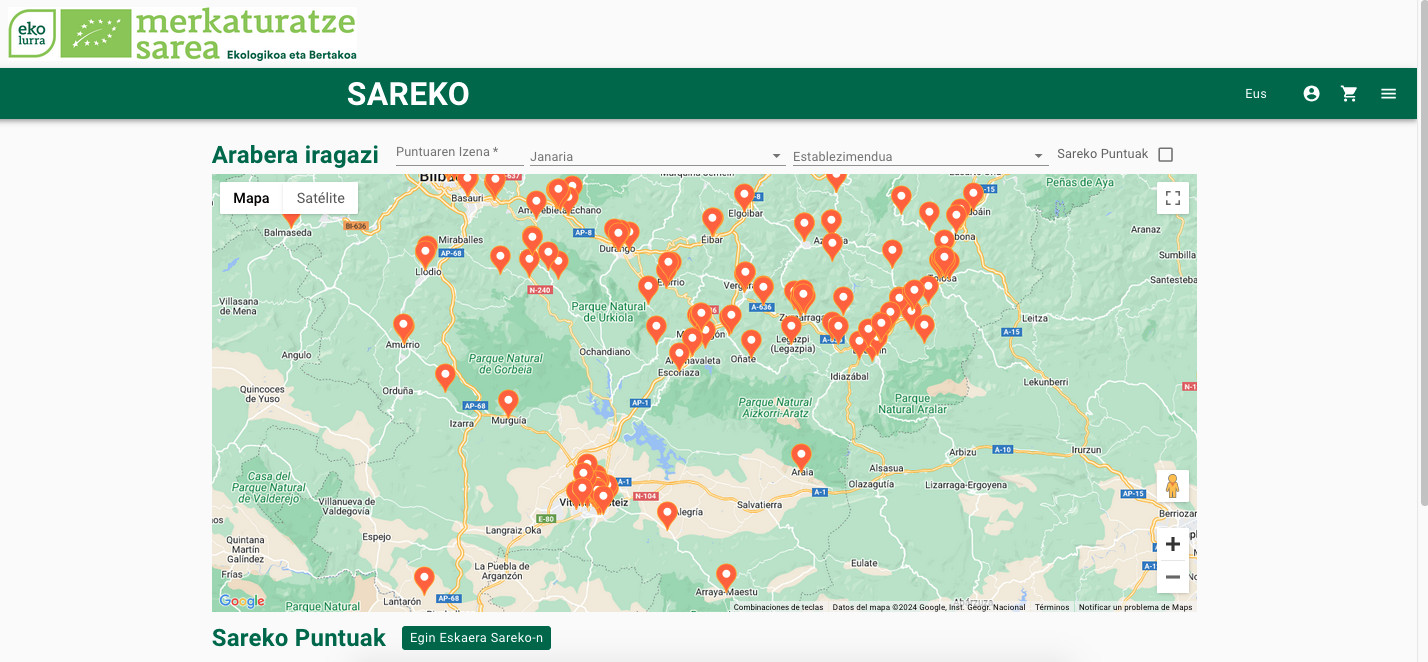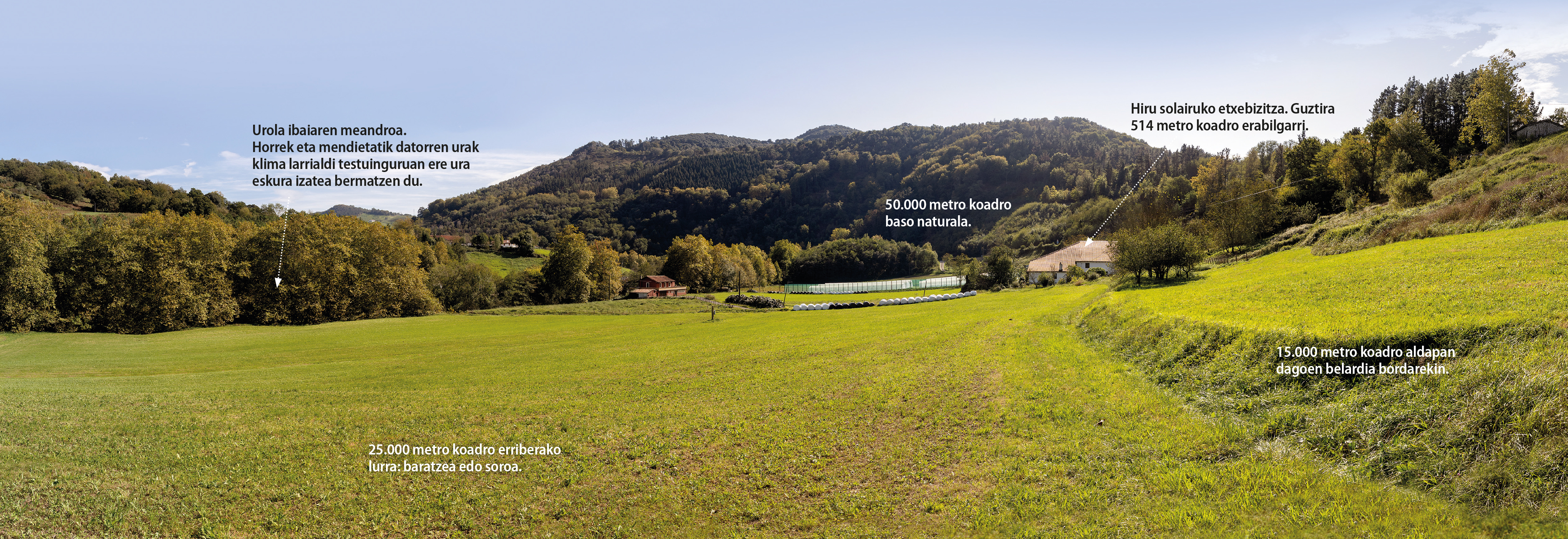Punish that injected storer who doesn't want poison
- Emmanuel Giboulot, a French winegrower and winemaker, was tried on 24 February in Dijon, France, for refusing to spread on his territory the insecticide that the authorities considered mandatory. Despite the fact that the prosecutor has lowered the initial request – six months in prison and 30,000 euros in fine – to 1,000 euros, the problem has not been cured.

A ferocious viticultor has not been left alone in the hands of justice. The Confederation Paysanne trade union, which is part of our ELB, has been supported by Greenpeace, Attac, the Slow Food movement, the Europe-Ecologie parties and NPA... But if he has come to court it is because in the department of Cote d’Or he has been the only one who has refused to rub his vineyards with the insecticide Pyrivert.
The case of Emmanuel Giboulot has provoked a great stir among the French people concerned with agriculture and the environment in general. In the Basque Country, the Laborari Weekly of the ELB has been the most explained. Giboulot declares in Laborari: “Care for the environment should not be subject to the repression of judges.”
It all starts in French because of the disease known as Flavescence Dorée. In English it is also known as Flavescence Dorada. Although it seemed a bit off, the disease seems to revive in southern France: the grapes red or yellowish, the trunk weakens, the flower loses, the grapes dry... The disease is spread by a special grasshopper called Cicadelle (Scaphoideus titanus).
In June 2013, the prefect of Cote d’Or made a tough decision: all winegrowers in the department should open the insecticide to dismantle any trace of the innocent Cicadelle. Giboulot did not comply with the order.
“The problem – he told Laborar- is that the one that least pollutes in pharmacies against this insect, also kills bees and other species of fauna. It destroys all the insects that help the vineyard defend itself from parasites. I have been taking care of the biological balance of our vineyards for over thirty years, with very good results and without resorting to chemicals”. He decided to deal with the rebellion with the natural weapons of biodynamic agriculture.
The fact is that on 30 July Giboulot was under the control of the Agriculture Inspectorate. It was he who asked for Pyriverta's bills. He didn't have them, and the winemaker clearly explained to him that he hadn't treated the vineyards with that compulsory medicine. The inspector reported the farmer to the prosecutor, the prosecutor. The wheel of justice had broken.
If a winemaker doesn't need something, it means he's having trouble with the judges. Less for a public health issue. Giboulot has confessed that he was appalled by the appeals of the judges, who have refused to take part in the attack.
But when the news was opened, another wheel, that of solidarity, was set in motion. In a few weeks, 480,000 firms were gathered to support the Protection associations of the Sante Naturelle (Protection of Natural Health). Resurrected, the winegrower who works in the biodynamic began to spread his message.
“Like the authorities, we must teach the public that responsible agriculture cannot destroy their environment. Dismissing insects, especially bees and pollinators, is destroying naturally fragile ecosystems, destroying nature, life itself, including that of man.”
New Chemical Inquisitors
The majority of other winegrowers are not of the same opinion as Giboulot. The Burgundy wine cellars' association wanted to make it clear at a press conference that they did not accept Giboulot's election, only by looking at his own and forgetting that of others, who acted in a very selfish way, that those who accuse Pyrivert are not polluting and that it is urgent to close the door to the disease that jeopardizes the region's vineyards.
The case of Emmanuel Giboulot is awaiting the judgment. The ruling, which will probably not be disclosed in three weeks, can also be appealed, so it will not reveal its decision.
But the fact is that there is a growing number of disputes between farmers who refuse the majority agriculture that is devoted to fertilizers and chemicals.
It is sometimes the same critical farmers who have come to court, for example, against GM crops. In fact, it is becoming increasingly clear that in areas where genetically modified organisms are authorised, the activity of those who grow crops without GMOs becomes practically impossible, as one pollutes the other.
But more and more people are suffering from problems who have not wanted to comply with the measures taken by the authorities in defence of industrial agriculture. The examples are thousands, from those imputed by the involuntary planting of GMO-contaminated seeds to those refusing to use obligatory drugs. Members of their trade are often charged, in addition to the authorities.
Without reaching the courts, any amateur beekeeper has come under pressure from health authorities and other beekeepers to use drugs against the Varro, which has become a worldwide pandemic, on the argument that “by not using it they contaminate the bees around us”.
Remorse refers to those who want to live crops or livestock in the short term. But at the same time, for every therapy you want to enforce, there's almost always someone who proposes the opposite from a broader ecosystem perspective. In the case of the bee and the Varrón, as in the end the innkeepers and the parasites, bees and lice, have to learn to live together, the experts who say that you have to let them live together in a controlled way.
The same goes for vaccines. It is not an easy subject to stretch, just like those who defend one conduct, the defenders of the other have their contradictions.
In the agricultural weekly itself, Maritxu Castillon, President of the Association of the Earth of Tomorrow (BLE), has simply confessed these contradictions: “We lost 70 sheep. We were forced to spend after these losses. We hadn't made a good meal when the fear had gotten in our heads, the losses were significant. Also in the cows, because of the raincoat, we had lost about 10 heifers and six cows. Calves were born before or without finite, with a drolysis. Cows either didn't take the bull or didn't take the cake. We’ve given these things about the check, because they haven’t happened since.”
In Giboulot’s claim, the ELB recalls that compulsory medicines and vaccines are essentially related to the interests of multinationals who want agriculture at their mercy rather than developing the traditional knowledge of farmers. The authorities help them to persecute dissidents and submissive people who want to use quality juice or who reject synthetic medicines.

























